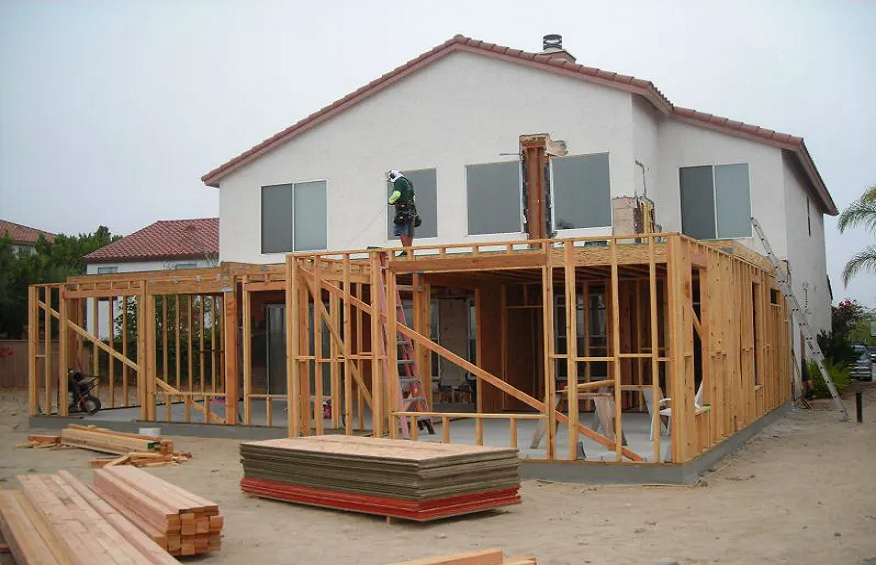In today’s dynamic housing market, adding space or functionality to your home can significantly increase its value including cute wallpaper designs. However, embarking on a home addition project is not without challenges. The timeline for your home addition can be influenced by several factors.
One of the most important things you can do is to find the right room addition contractor for your project. Here in Mountain View, there are plenty to choose from, be sure to check their online reviews as well as past projects before hiring anyone. We will delve deep into these crucial aspects to help homeowners better understand and prepare for the journey ahead.
Key Factors Affecting Your Home Addition Timeline
1. Planning and Design Phase
Before any construction begins, proper planning is essential. The planning phase involves understanding your needs, finalizing the design, and seeking approvals. Acquiring permits, especially in regulated areas, can add weeks or even months to this phase.
2. Contractor Availability and Expertise
Your choice of contractor can directly influence the timeline. Established contractors with a reputation for quality work often have packed schedules, which might lead to initial delays. However, their experience ensures that once the project begins, it proceeds without major hitches.
3. Material Availability and Delivery
The global supply chain can be unpredictable. Shortages of essential materials like lumber or specific fixtures can delay your project. Additionally, custom orders, such as bespoke windows or specialty tiles, often have extended lead times.
4. Weather Conditions
External factors like weather can significantly alter your project timeline. Rain, snow, or extreme temperatures can hinder construction activities, especially for projects that involve foundational work or exterior modifications.
5. Complexity and Scale of the Project
Larger or more complex projects naturally take longer. For instance, adding an entire floor or a comprehensive outdoor space with plumbing and electricity will require more time than a single room extension.
6. Unexpected Challenges
During construction, unforeseen issues such as foundation problems, outdated wiring, or hidden water damage can arise. Addressing these challenges can add days or even weeks to your timeline.
7. Quality Assurance and Inspections
Quality assurance is vital for any construction project. This phase ensures that the addition meets the requisite standards and is safe for habitation. Furthermore, local regulations might require multiple inspections, each of which can extend the timeline.
8. Final Touches and Finishing
The last stages, which include painting, installation of fixtures, and landscaping, while seemingly minor, can add up. Proper finishing is vital for the durability and aesthetics of your addition.
Steps to Streamline Your Home Addition Timeline
Embarking on a home addition project is a monumental task, often filled with excitement and anticipation. However, delays and setbacks can dampen the enthusiasm. Streamlining your timeline is not only about expediting the process but also about ensuring each step progresses smoothly and efficiently.
Early and Detailed Planning
- Assessment of Needs: Begin by clearly understanding the purpose of your addition. Is it to add more living space, or perhaps a dedicated area for a particular activity? Establishing clear objectives will guide subsequent decisions.
- Sketch Initial Ideas: While detailed blueprints will come later, even basic sketches can provide a clearer vision and ease discussions with professionals.
- Research Zoning and Regulations: Different localities have various zoning laws and building codes. Being aware of these beforehand can save time and potential redesigns later.
- Budget Allocation: A well-outlined budget will help in making informed choices throughout the project and avoid unnecessary halts due to financial constraints.
Engage with a Reputable Contractor
- Seek Recommendations: Personal recommendations from friends and family can lead to trustworthy contractors.
- Check Past Work: Look at their portfolio, visit completed projects, and gauge the quality and style of their work.
- Discuss Availability: A reputable contractor might have a packed schedule. Discussing timelines at the outset ensures no surprise delays later.
- Clear Communication: Ensure that the contractor understands your vision and requirements. A shared understanding is crucial for a streamlined process.
Regular Communication with Your Contractor
- Set Communication Protocols: Decide on the frequency and mode of communication. Regular weekly meetings or updates can keep everyone aligned.
- Be Open to Suggestions: Contractors, with their experience, can offer valuable insights or alternatives that might be more feasible or economical.
- Maintain a Project Log: Documenting progress, issues, and discussions can serve as a reference and helps in staying on track.
Be Decisive
- Limit Change Orders: While some changes during the project are inevitable, frequent alterations can cause delays and increase costs.
- Trust Your Initial Research: You’ve done your homework in the planning phase. Trust those decisions to maintain momentum.
- Seek Feedback, but Decide: While it’s beneficial to seek opinions, the final decision should align with your vision and needs.
Prepare for Contingencies
- Time Buffer: Always allocate some extra time, perhaps an additional 10-15%, to cater to unforeseen delays.
- Financial Backup: Unplanned expenses can arise. Setting aside a financial buffer, around 20% of the total budget, ensures the project doesn’t stall due to financial hitches.
- Have a Plan B: Whether it’s an alternative supplier in case of material delays or a temporary living arrangement if the project runs longer, having backup plans can keep things moving.
By following these steps, homeowners can not only ensure a quicker home addition but also a more organized and less stressful experience. As with any significant undertaking, preparation and proactiveness are key.
Think About Space & Functionality
Adding space or functionality to your home is an exciting endeavor. While the journey might seem long, understanding the factors influencing your home addition timeline can help in better planning and execution. Remember, the goal is not just to complete the project quickly but to ensure that the addition stands the test of time and enhances the value and functionality of your home.

